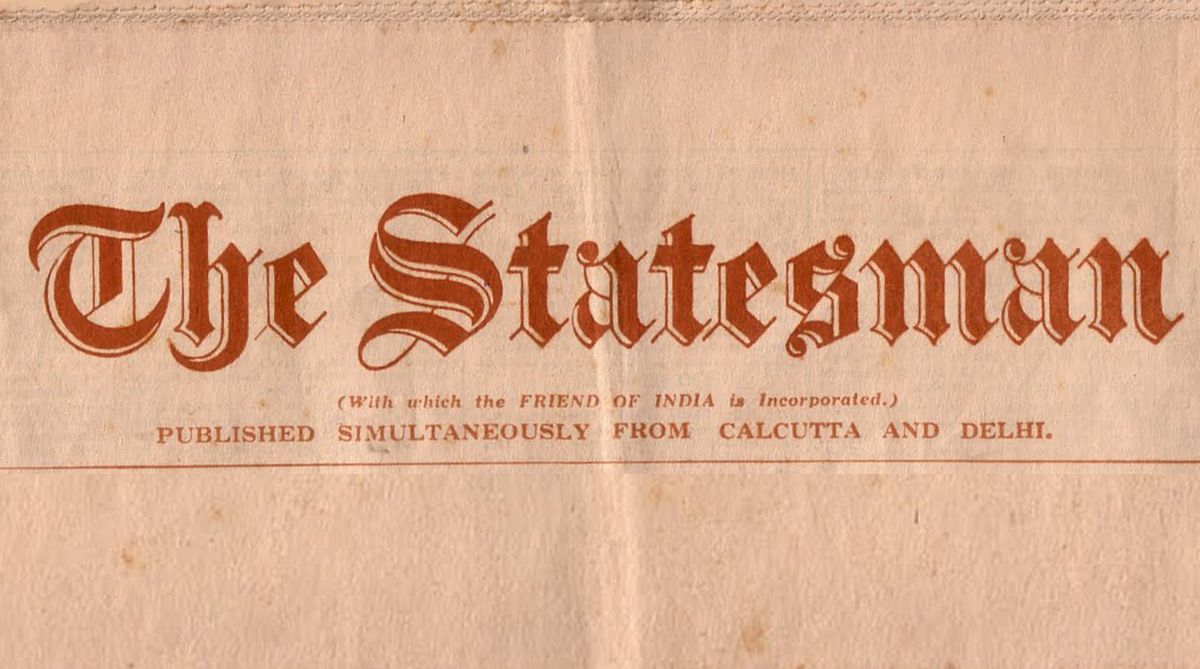A HAPPY JOURNEY
This evening it was about honoring those who made it possible for the oldest English daily to host its most prized annual celebration of heritage, the Vintage Car Rally, which enters its 53rd year this year.
On this day a century ago, these were some of the news items The Statesman readers got to read about India and the world.

OCCASIONAL NOTE
Any light should be welcome that can be thrown upon the future electorates on which Indian constitutional reform is to be founded. The opinions of the Bengal Mahajan Sabha on the Bengal Village Self-Government Bill are worth noting.
The Association welcome the Bill cordially, as laying the foundation of real self-government in the country and providing a means of training the villagers in work of which, it is frankly admitted, they have hardly any conception at present. At the same time an association of Bengali merchants who have money at stake in the country are not likely to let their imaginations run away with them.
Advertisement
Accordingly we find the Sabha recognising the need for reasonable caution in setting up new village authorities. Amongst other points it is not willing to entrust village committees with authority to demolish huts or to frame scheme of building regulations, and it is decidedly opposed to the idea of vesting the committees with either criminal or civil jurisdiction – bearing in mind that the committees will be constituted of “men without the slightest tincture of legal knowledge or education.”
The Sabha, in fact, takes the sane and sensible view that the villagers need to be trained in the management of their public business and that mischief will result if they attempt functions for which they lack the necessary knowledge.
At present, in the view of Bengali business men, they are not deemed far enough advanced to take full charge of their own villages without the aid of the District Magistrate, the Sub-divisional Officer, or the District Board.
TWICE ARRESTED ON SAME CHARGE
A question of law was discussed before Mr. P.N. Dutt, acting Second Presidency Magistrate, Jorabagan Court, on Tuesday, in the case in which a Mahomedan, named Jellaluddin, was re-arrested by the Jorasanko police on a charge of being in possession of cocaine.
In the original case, the accused was sentenced to a month’s rigorous imprisonment by Mr. Dutt, but appealed to the High Court and the sentence was set aside on the ground that the formal complaint was lodged by a junior officer of the Jorasanko thana, who was not competent under the law to be a complainant in Excise cases.
In the present case after the accused was re-arrested on his release by the High Court, the challan which contained the same charge was on this occasion signed by the officer-in-charge of Jorasanko thana, who was competent by law to prosecute in Excise cases.
Babu Monoj Mohan Bose, Vakil, and Moulvie M. Ahmad, Pleader, argued that under Section 403, Criminal Procedure Code, fresh proceedings was barred and that when there once was an acquittal by a superior court, the accused person could not be tried again on the same facts. The Magistrate promised to consider the matter before passing orders.
DACCA ORPHANAGE
Lord Ronaldshay visited the Dacca Orphanage on the 24th ult., and was received by Mr. J.T. Rankin, I.C.S., Commissioner of Dacca Division, and the members of the managing committee. His Excellency inspected the portrait and memorial tablet of the late President, Mr. N. Bonham-Carter. Thence Lord Ronaldshay was conducted to the rooms where specimens of wood-work, such as letter cases, towel racks, brackets, and bamboo baskets, hand-made by the boys and girls, were arranged for inspection.
In the hall the girls sang a welcome song, a little girl garlanded his Excellency, and another little girl recited an action-song. Lord Ronandshay then inspected the needle work of the girls and visited all departments of the institution. Before his Excellency’s departure a photograph was taken. Babu Ananda Chandra Roy, Vice-President, explained the present position of the Orphanage, laying special stress on the necessity of more accommodation. He appealed for adequate Government help in the matter. In honour of Lord Ronaldsay’s visit a number of contributions were made by various donors in help of the orphanage.
FORCED MARCHES
Reuter’s correspondent at the American headquarters, telegraphing last night, says: The enemy’s measures to hold the Juvigny plateau prove how seriously he must regard its loss. Three divisions were hurried up to reinforce the Germans, one of which started from Metz at dawn on August 21st and marched the whole hundred and forty miles from Metz without a break.
A distance covered in this manner by a division is most significant. Yesterday only six officers were taken prisoners as compared with 555 other ranks. Officers appear to be rare in these divisions and prisoners do not express a high opinion of their value. Juvigny plateau is now ours for all tactical purposes.
Advertisement